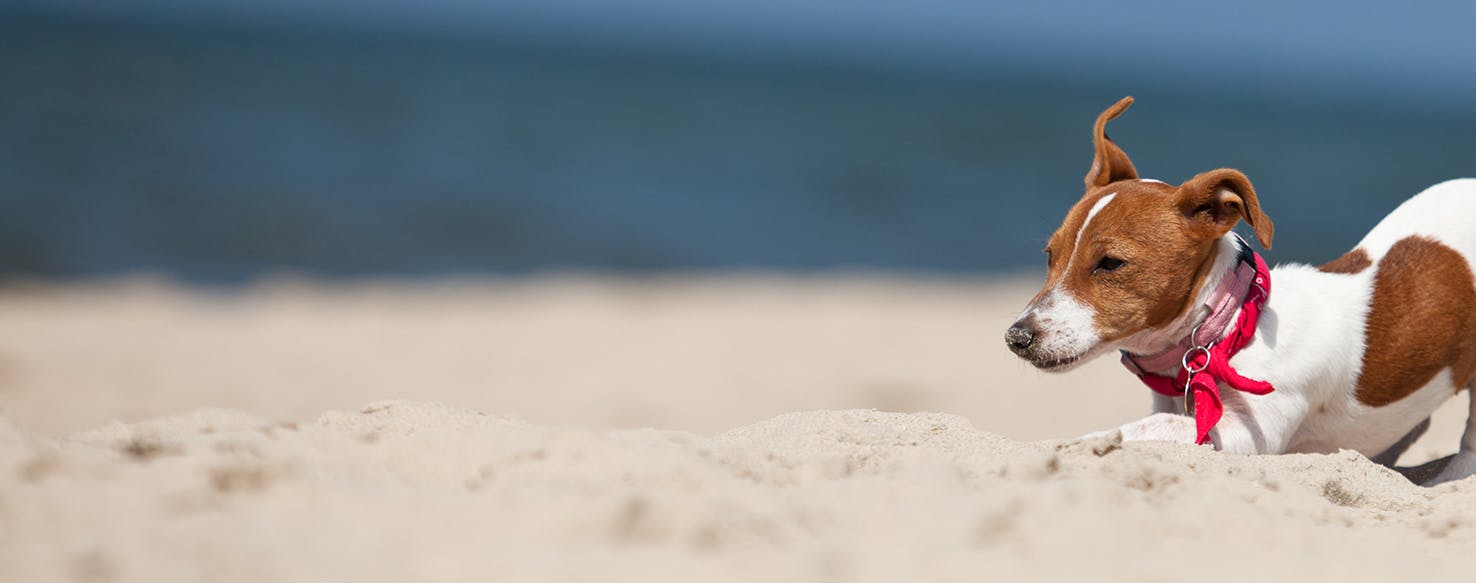- Home
- The Daily Wag!
- Behavior
- Why Do Dogs Play With Dead Animals

Common
Normal
Imagine walking your dog and while you are both having a good time, he suddenly falls behind a few steps back half a block from your house. You don’t think much of it but then you suddenly notice him playing with something. A toy? Nah you don’t think so, you certainly did not bring any when you took him out for a walk. You call his name and he comes running back to you with something in his mouth. What is it? A severely decomposed squirrel carcass!
When your dog is just being a dog and giving in to his canine delights, he might play with assorted “items” and might even proudly bring them home to you. Well, these are not the “items” you would certainly see in pet stores but to your beloved canine, they are a lot more fun.
Dogs have a better sense of smell than we do and they can easily find animals that have recently passed away and because they have a better olfactory sense than us, they find dead animals long before we do.
Humans like aromas that are floral, fragrant, and fresh. Dogs, on the other hand, like disgusting, dead, and dirty things. Just as you like dabbing yourself with perfume, your pooch also likes to douse himself with anything that stinks. To us, it is very disgusting but to them, it is divine, like mana from heaven. Even the most well-behaved pooch will play with dead animals and other things that stink, sooner or later.
Dogs just seem to have the knack for finding dead things and playing with them. You name it, dead raccoons, dead rabbits, and dead squirrels. They sniff them, paw at them, turn them over from one side to another, and most of the time pick them up using their mouth. As a matter of fact, a dead animal becomes even more interesting to dogs after a few days, when they have ripened.
The most popular theory of why dogs do this is that they want to mask their own scent and by doing so, it will be easier for them to sneak up on animals. This is an instinct that is carried through numerous generations of pets, even though nowadays they no longer have to hunt for food. A potential prey does not expect being attacked by something that smells rancid.
Playing with dead animals is unlikely to do your dog any harm. However, there are two things you might be worried about when your dog plays with dead animals or bites them and those are infectious diseases and poison. Some dead animals may have been poisoned by something toxic such as warfarin, something commonly used for rats.
Dead animals may also carry bacteria that cause diseases such as leptospirosis. Although it is something curable with antibiotics, your dog can get in harm’s way if it is not detected early. There are a lot of animals that carry diseases and are especially common in rodents.
Need advice about your pet's health?
Get answers fast from a veterinary professional 24/7 in the Wag! App.
Get Vet ChatMuch as we advocate letting dogs enjoy what they enjoy, we will not tell you to let your pooch play with dead animals, but dogs will always be dogs. They may not be wild anymore, but they still retain their ancestors’ traits so the best thing that you can do is to keep your cadaver-playing dog safe.
One way is to teach them the “drop it” trick. It is a method that is not only easy but also brilliant. The basic idea behind this cue is to use something your dog wants to do as a reward for doing something which you want him to do.
Whenever you see your dog start to pick up and play with a dead animal, you should him to back off. Once he has done so and is a little less excited about his find, you can allow him to go back and sniff a bit more but never pick it up. What most experts find surprising about this type of training is that it the dog loses interest in the dead animal much faster than before. Practice first with something less enticing than a dead animal. The same rules apply to other types of training. You should do the easy things first then slowly work your way up.
Do not panic if you see your pooch playing with a dead animal and do not be angry with your pet, especially if he brings his “treat” home. Put consideration into why your dog would play or even bring home the dead animal. Ensure that the dead animal is disposed of in a way that your pet will no longer be able to retrieve it so that it does not show up on your porch because your pooch continues to dig it out of your trash bin.
Always remember that getting angry at your dog and reprimanding him is not going to help at all and may even strain the relationship between you and your dog. Opt for positive reinforcement to change his behavior, rather than punishing him for playing with dead animals.
Playing with dead animals is not uncommon but it is something which you do not want to discourage to avoid your pooch getting deadly diseases. Certainly, you do not want your dog to get sick or get in harm’s way. Train your pooch early to prevent any harm from happening to him and ensure he gets home not smelling like a cadaver.
Written by a Chow Chow lover Jhoana Carla de Toro
Veterinary reviewed by:
Published: 03/07/2018, edited: 01/30/2020
More articles by Jhoana Carla de Toro

